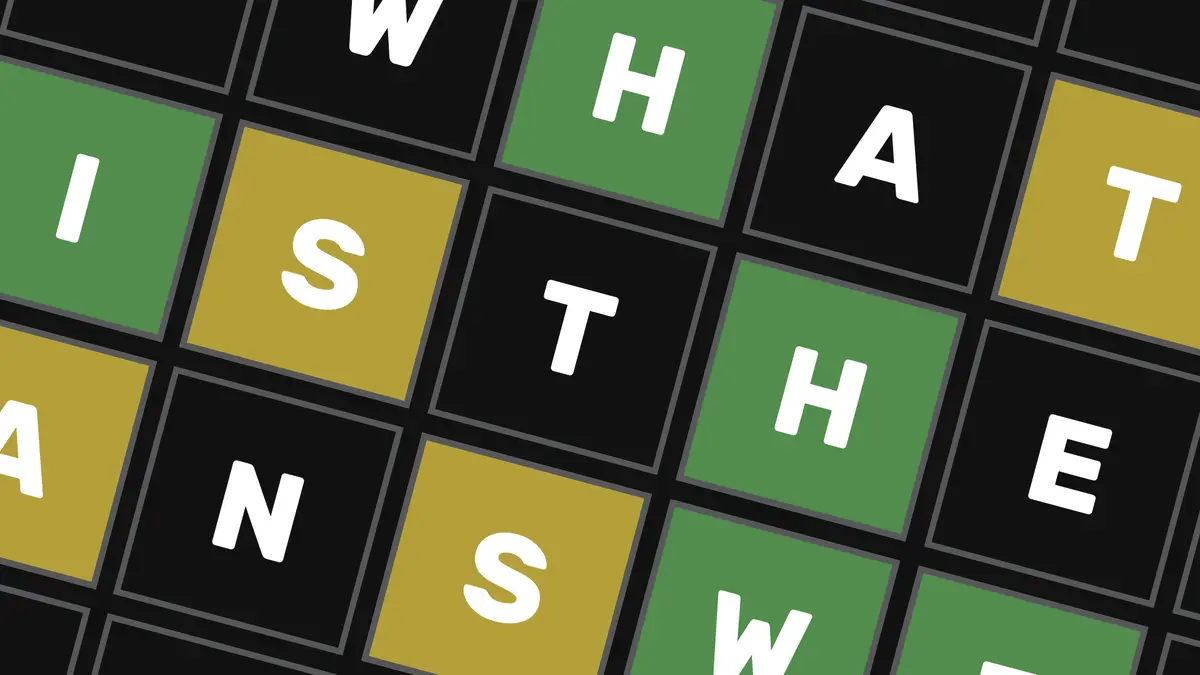Wordle, the viral word puzzle game, has taken the internet by storm, captivating users with its simple yet challenging format. In this comprehensive guide, we delve into the world of Wordle, equipping you with strategies, tips, and insights garnered from various “Try Hard Guides.” Whether you’re a novice or a seasoned player, this article is your one-stop resource for mastering Wordle.
Understanding the Essence of Wordle
Before diving into strategies, it’s crucial to grasp the essence of Wordle. This puzzle, developed by Josh Wardle, challenges players to guess a five-letter word within six attempts. Each guess provides feedback in colored tiles, indicating how close your guess is to the day’s word. The simplicity of Wordle lies in its minimalistic design and the intriguing challenge it poses to players’ linguistic and cognitive skills.
The Allure of the Game
Wordle’s allure lies in its daily reset feature, creating a sense of urgency and a communal gaming experience as players globally rush to solve the same puzzle. This shared experience has spawned a community of enthusiasts who share their results and strategies online, contributing to the game’s viral status.

The Role of Try Hard Guides in Wordle Mastery
“Try Hard Guides” have become vital for avid Wordle players. These comprehensive guides provide in-depth strategies, word lists, and analytical tools to enhance your gameplay. They are designed not just to help you solve the puzzle but to do so with more efficiency and skill.
Strategic Word Selection
One of the primary focuses of Try Hard Guides is the strategy of word selection. Your initial guess in Wordle can significantly influence your success. These guides suggest starting with words that include common vowels and consonants. For instance, words like ‘RAISE’ or ‘SLATE’ are excellent starting points as they contain common letters used in the English language.

Understanding Letter Frequency
Try Hard Guides often emphasize the importance of understanding letter frequency. Certain letters appear more frequently in five-letter words. By prioritizing these letters in your guesses, you increase your chances of hitting the correct letters sooner. This strategy resembles a game of probabilities, where knowledge and luck intersect.
Analytical Approach to Wordle
Taking an analytical approach to Wordle is another key aspect of Try Hard Guides. This involves breaking down the feedback from each guess to refine subsequent attempts.
Pattern Recognition and Logical Deduction
Recognizing patterns and using logical deduction are skills that these guides hone. For instance, if a letter is highlighted as being in the correct position (green tile), you know to keep it in that spot for your next guess. Conversely, a yellow tile indicates the right letter in the wrong place, prompting strategic letter shuffling in your next attempt.
Elimination Technique
An often-overlooked strategy is the elimination technique. If a letter is marked as not in the word (grey tile), it’s crucial to avoid repeating it in subsequent guesses. This process of elimination is central to narrowing down the possibilities and inching closer to the correct word.
Advanced Techniques in Wordle
For those looking to go beyond basic strategies, Try Hard Guides offer insights into more advanced techniques.
Letter Pair Analysis
Understanding common letter pairs in English can be a game-changer. For example, if you’ve identified ‘R’ as a correct letter, considering common pairings like ‘ER,’ ‘AR,’ or ‘RE’ in your next guess can be highly effective.
Word Structure Analysis
Analyzing the structure of English words is another advanced strategy. For instance, understanding that certain letters are more likely at the beginning or end of words can guide your guesses. This analysis is particularly useful in the game’s latter stages when you’re fine-tuning your guesses.

Psychological Aspect of Wordle
The psychological aspect of Wordle, often covered in Try Hard Guides, keeps players coming back. The game taps into cognitive processes like memory, pattern recognition, and problem-solving, offering a satisfying mental workout.
The Joy of Learning
Wordle is not just about winning; it’s a journey of learning. Players often report an improvement in their vocabulary and cognitive skills. The game’s educational value, particularly in enhancing linguistic abilities, is a key element that keeps the puzzle interesting and engaging.
Community and Competition
The sense of community and friendly competition is another psychological factor that adds to Wordle’s charm. Sharing your success, strategies, and even failures with others creates a bond among players, fostering a sense of belonging and camaraderie.
Beyond Wordle: The Future of Word Games
As we look to the future, the success of Wordle signals a bright future for similar word games. The simplicity, accessibility, and intellectual challenge such games pose suggest a growing trend in this genre.
Innovation in Word Puzzles
Expect to see more innovative word puzzles leveraging technology and community aspects. The potential for augmented reality (AR) or virtual reality (VR) integration in word games could redefine how we engage with language-based puzzles.

Educational Implications
The educational implications of games like Wordle cannot be overstated. They offer a fun, engaging way to enhance language skills, making them valuable tools in formal and informal educational settings.
In conclusion, Try Hard Guides offer a comprehensive roadmap to mastering Wordle, providing strategies, insights, and a deeper understanding of the game’s mechanics. Whether you’re a casual player or a dedicated word puzzle enthusiast, these guides are invaluable in your journey to Wordle mastery. As word games evolve, the skills and strategies learned through these guides will undoubtedly remain relevant, enriching our experience of language and puzzles for years to come.






